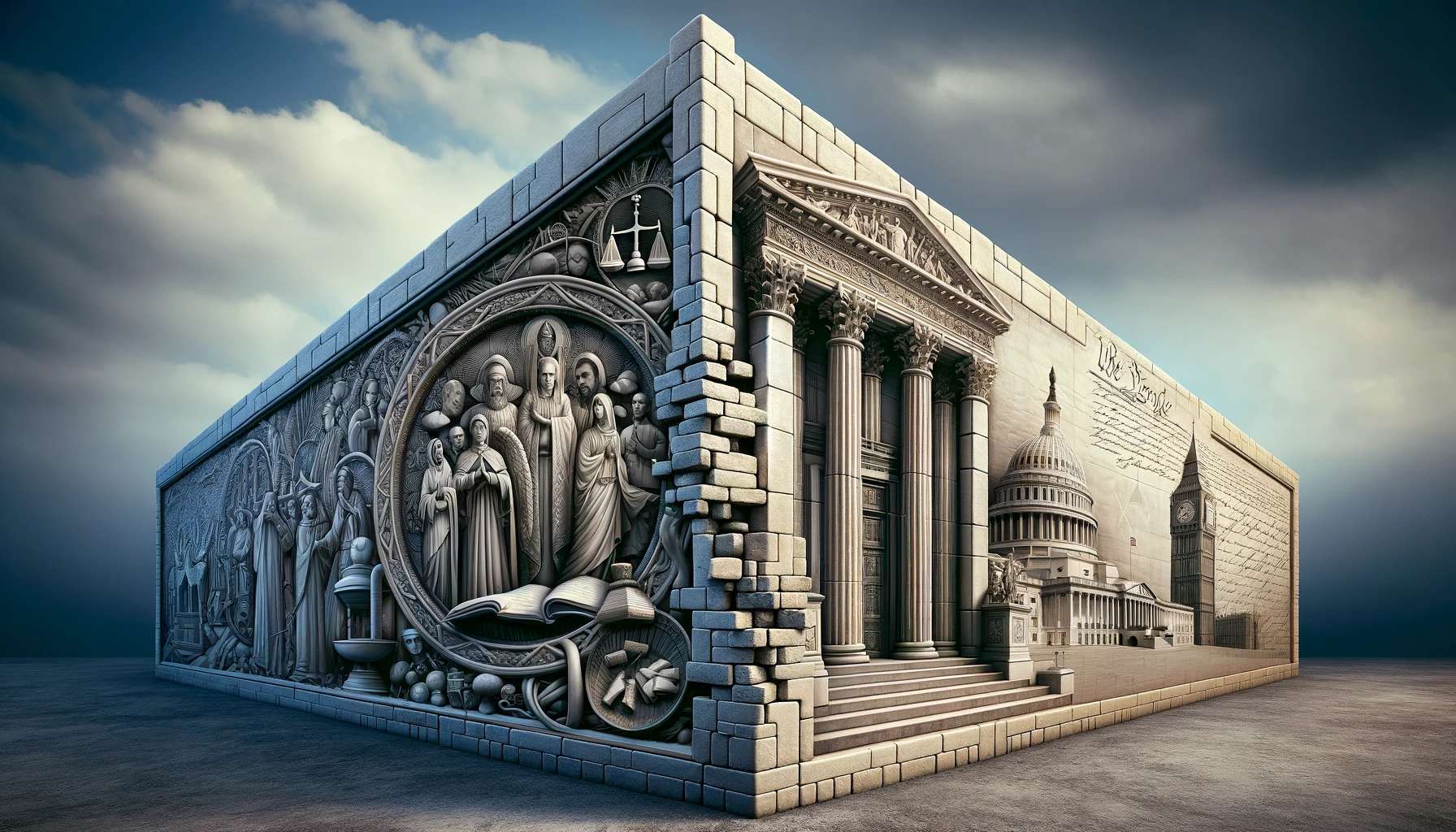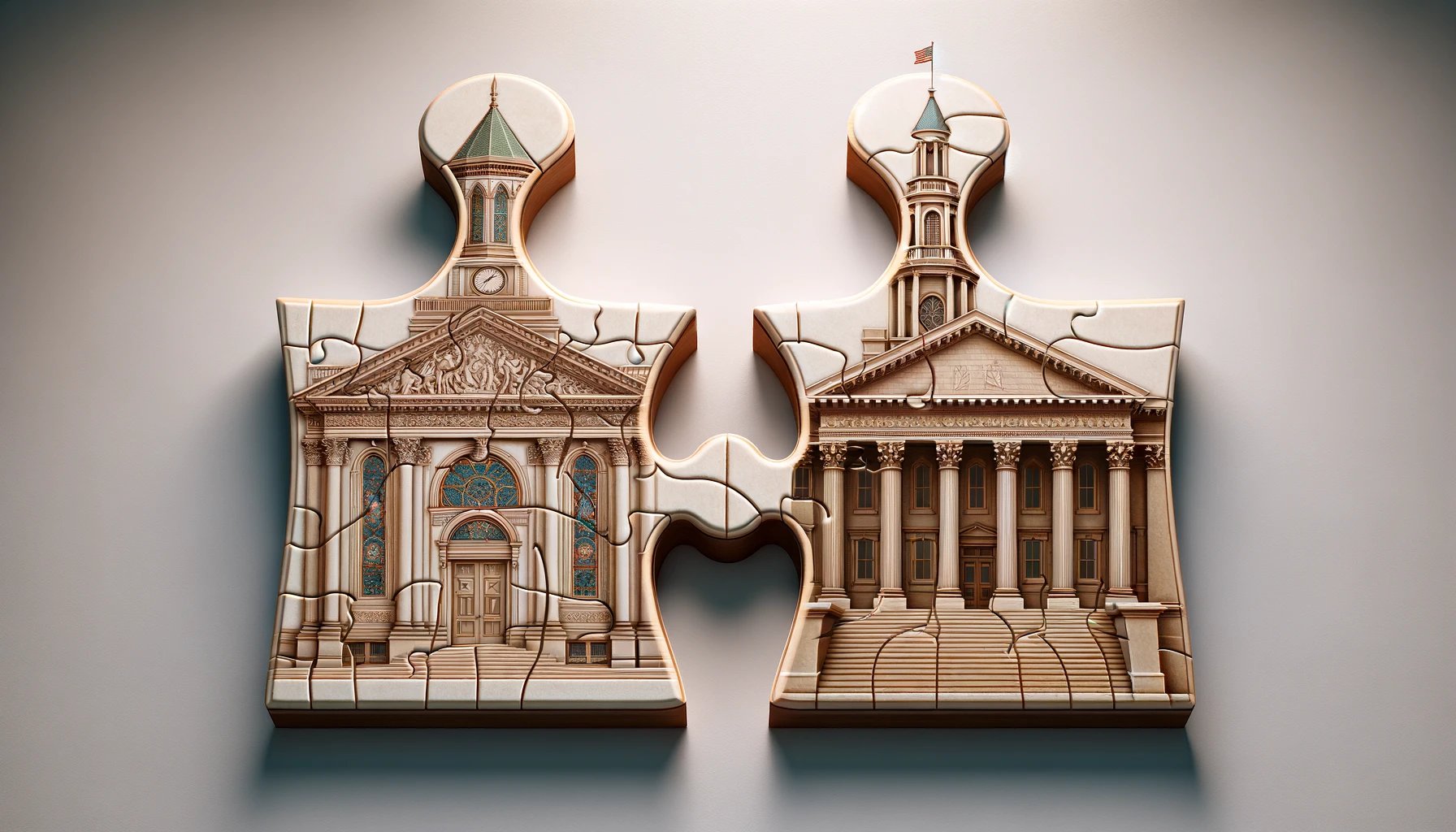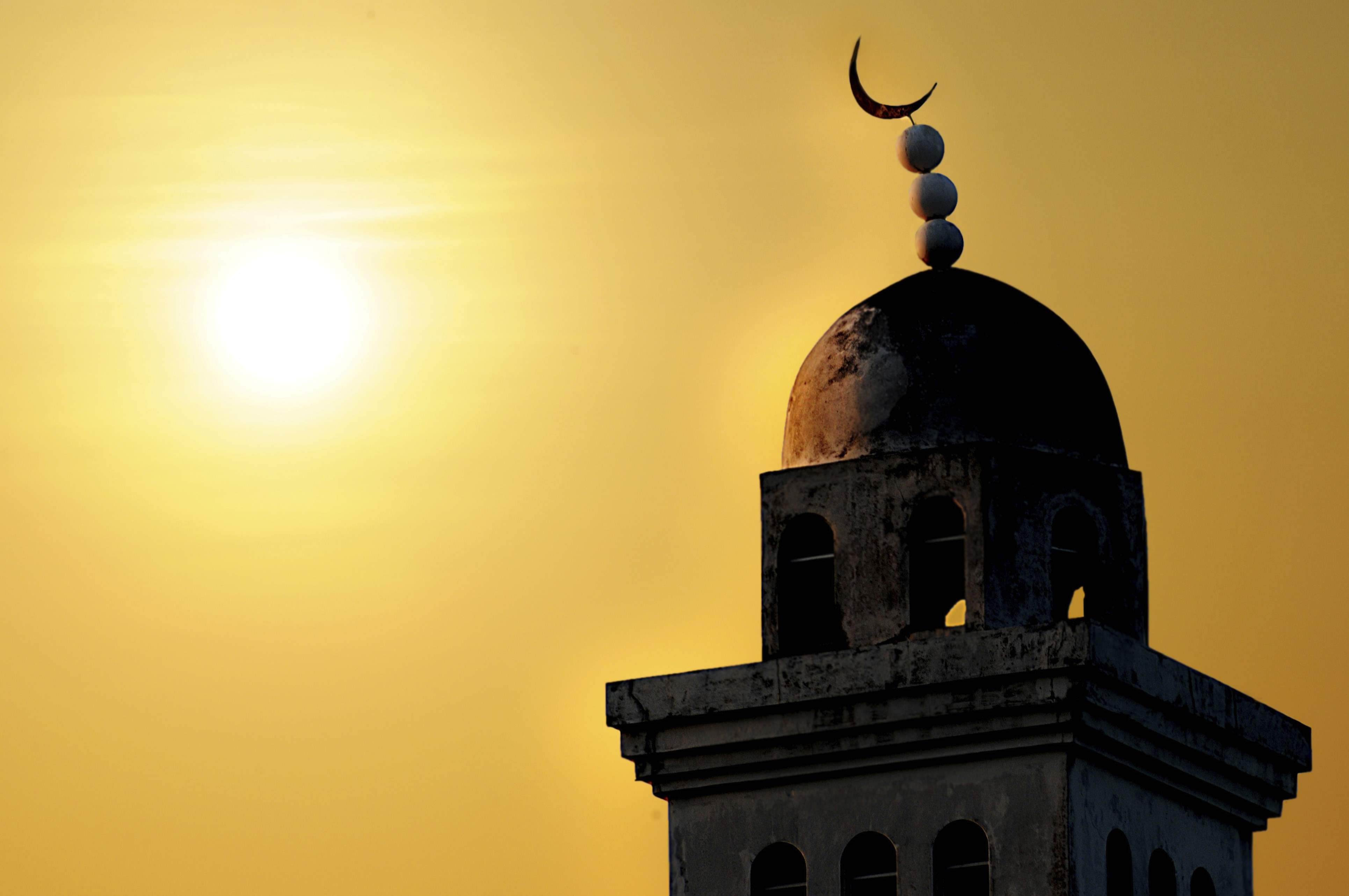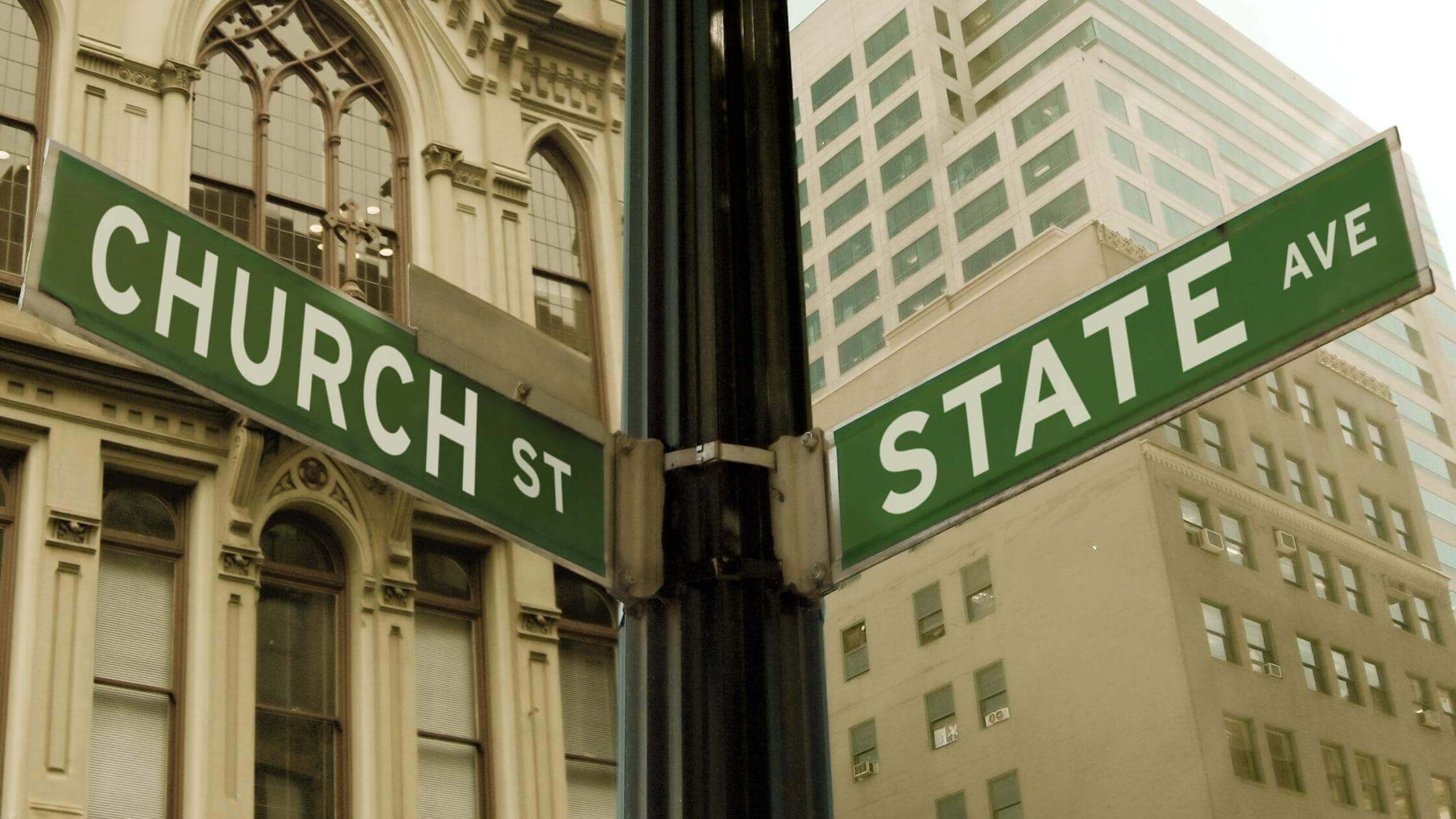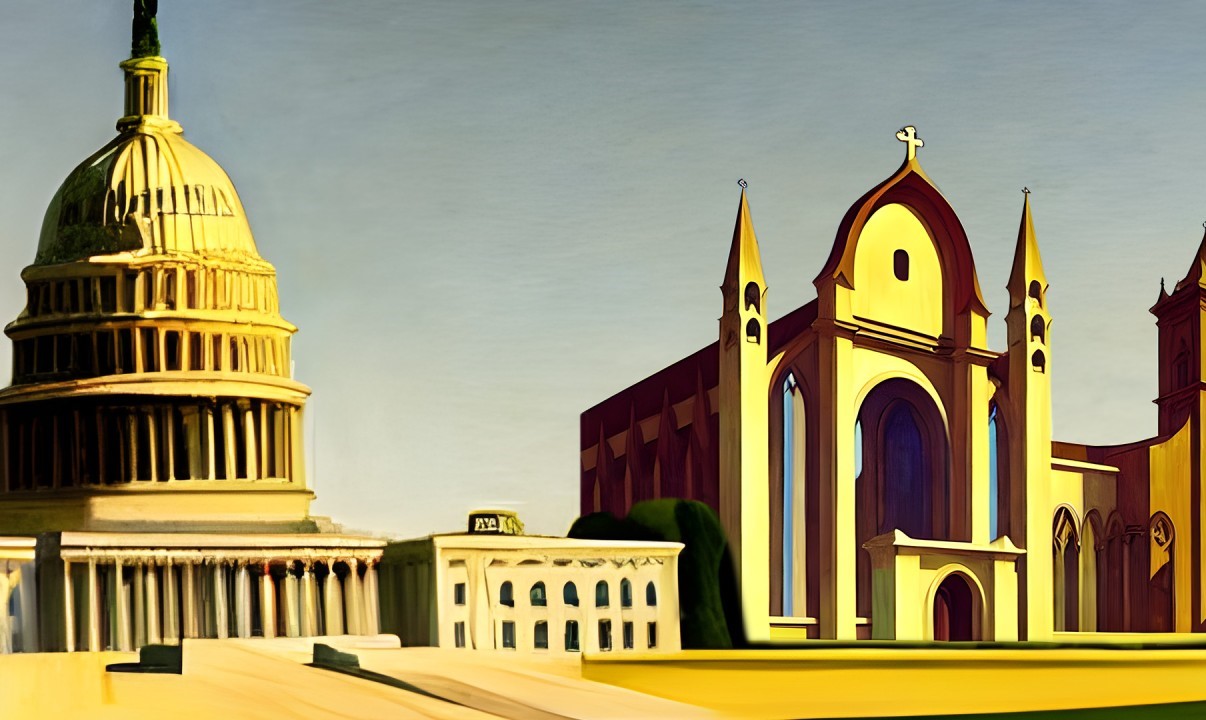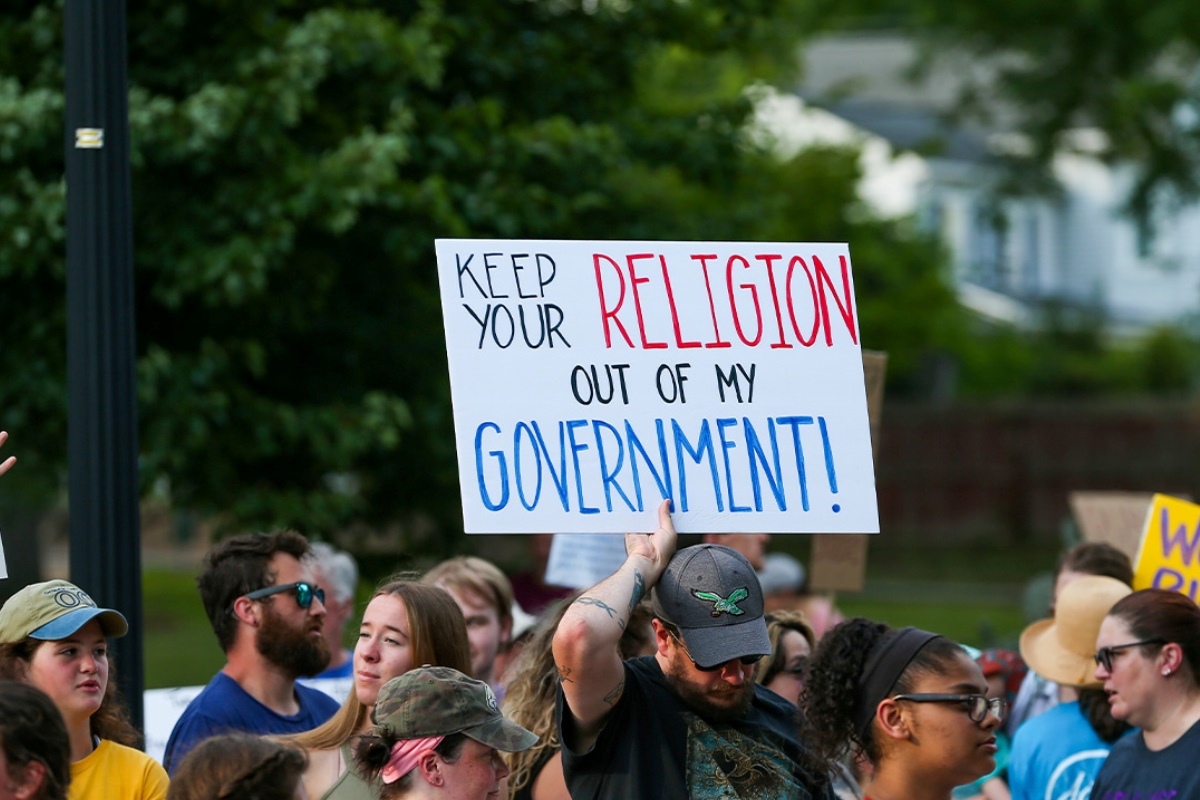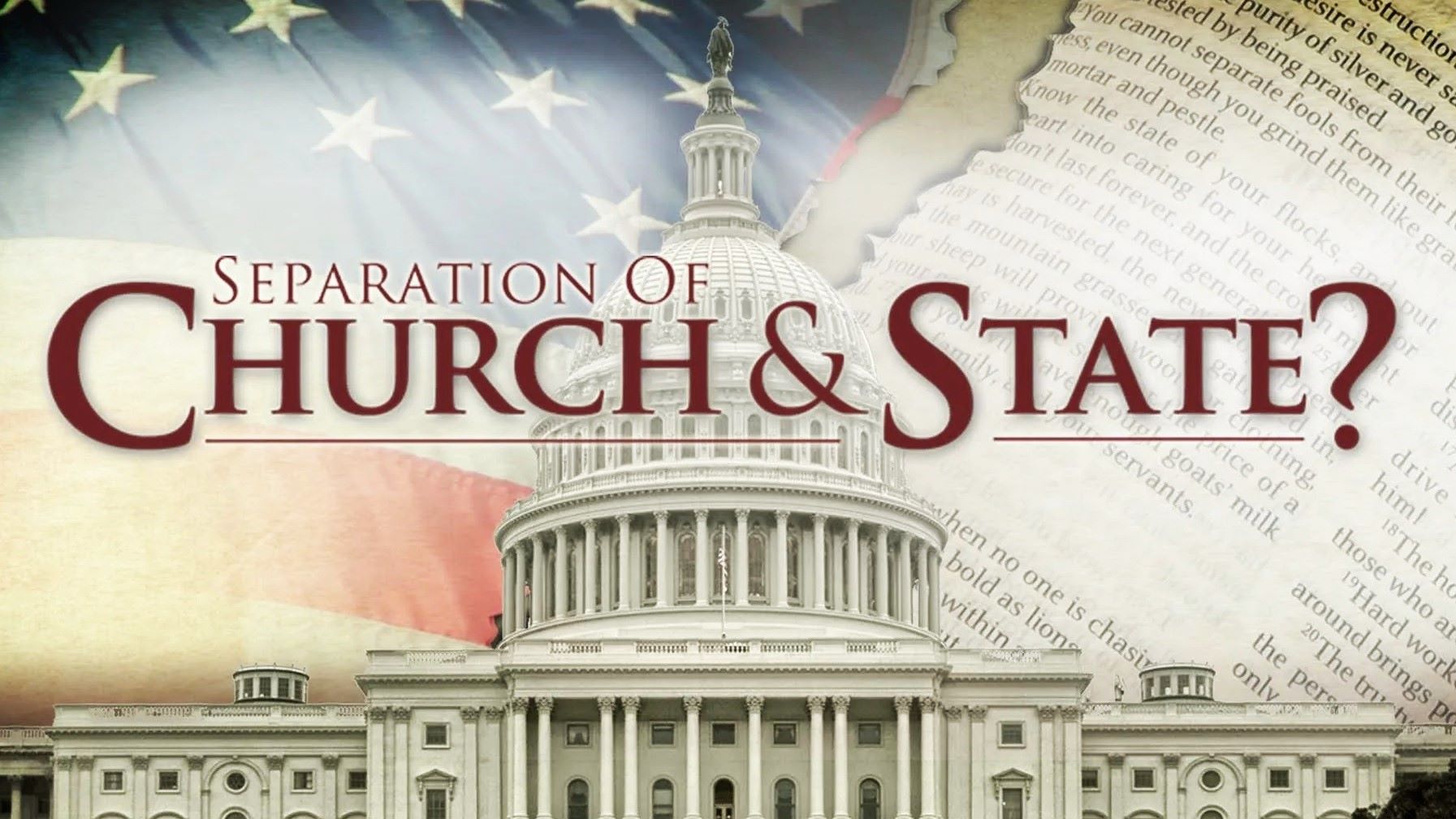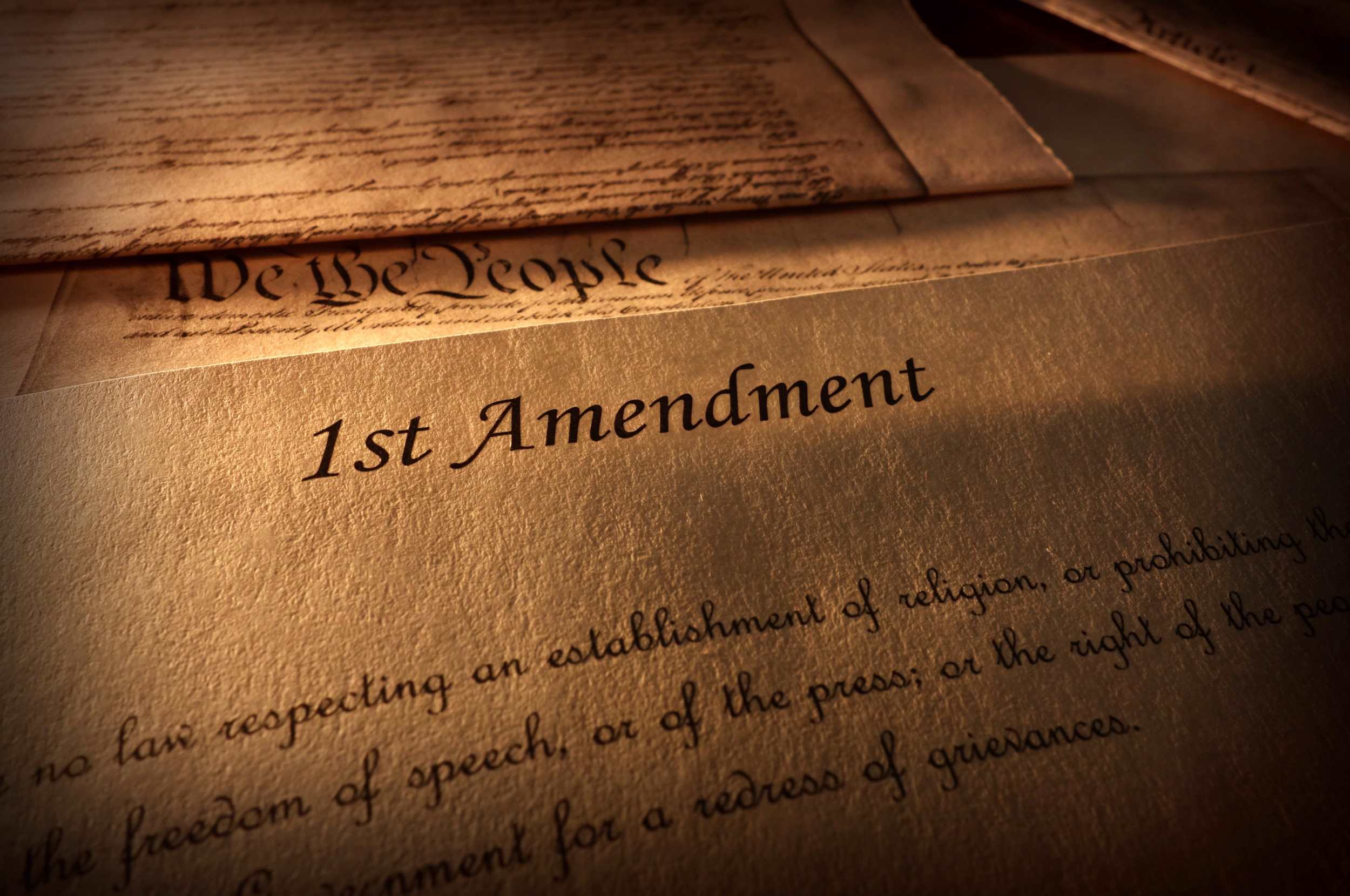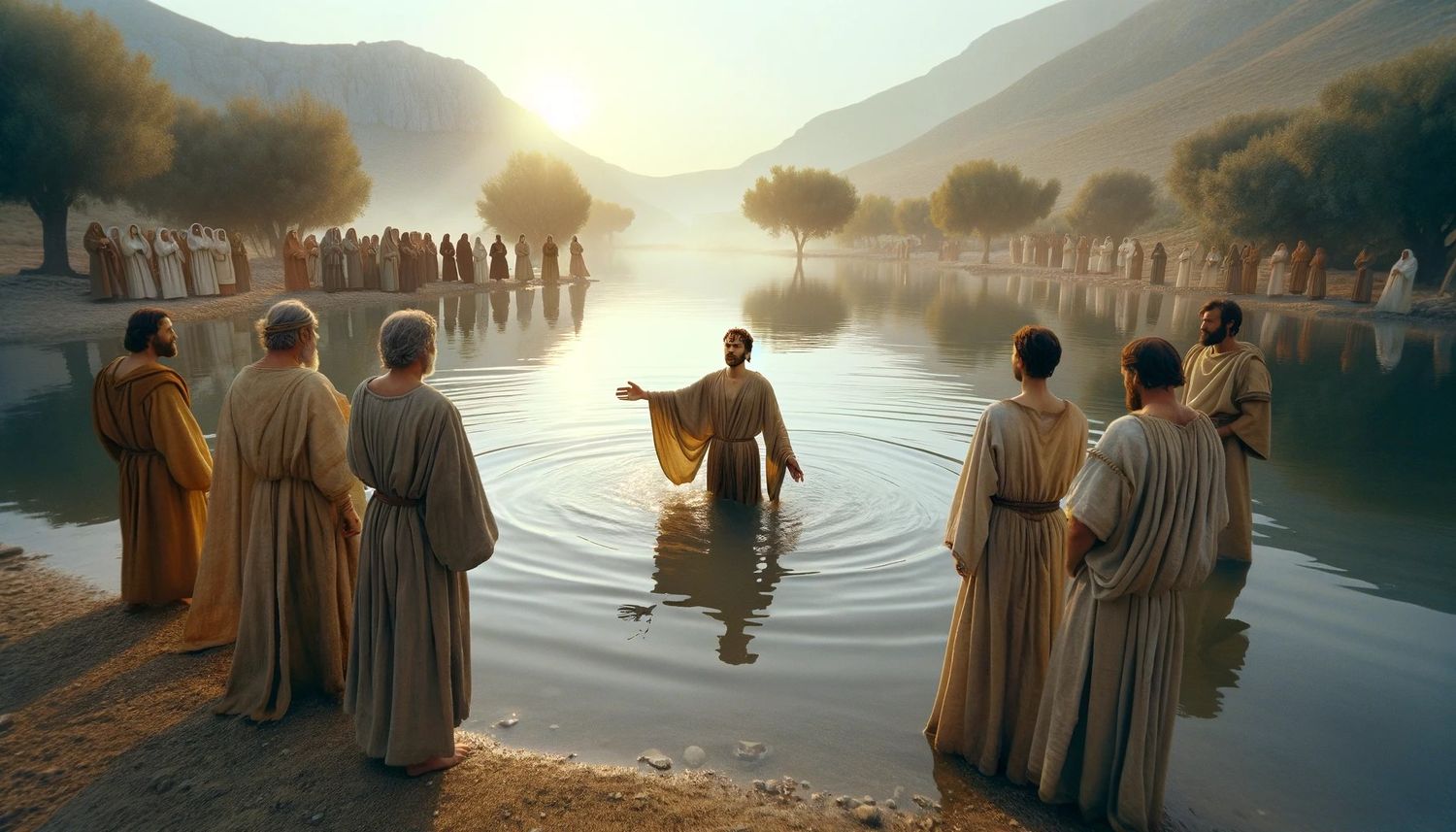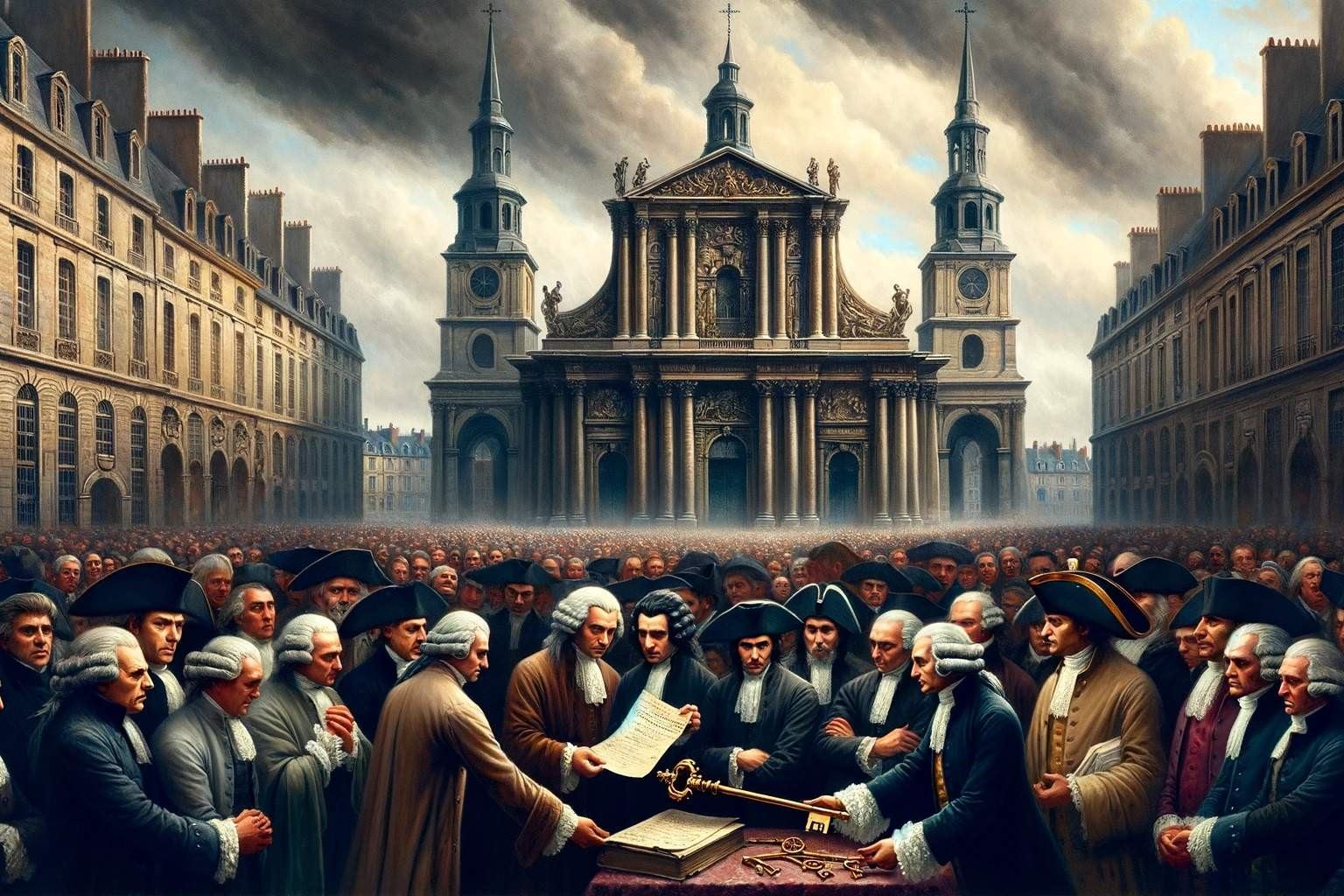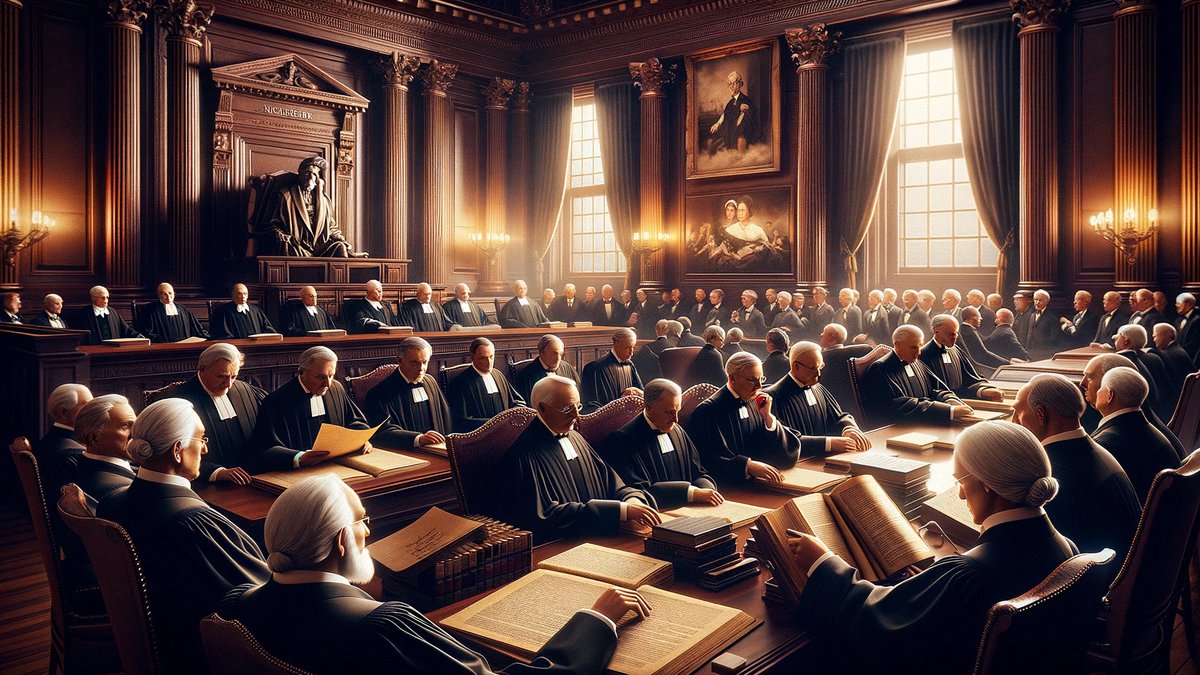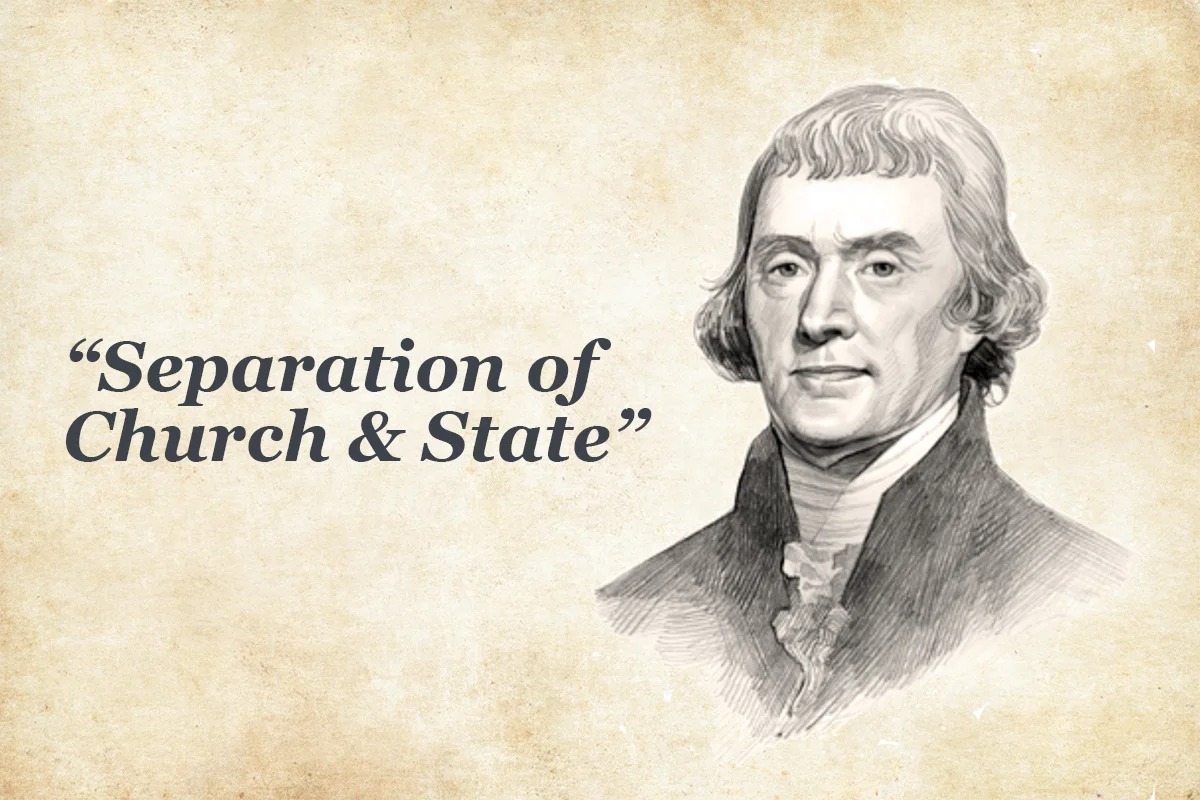Home>Theology and Spirituality>Why Separation Of Church And State Is Important
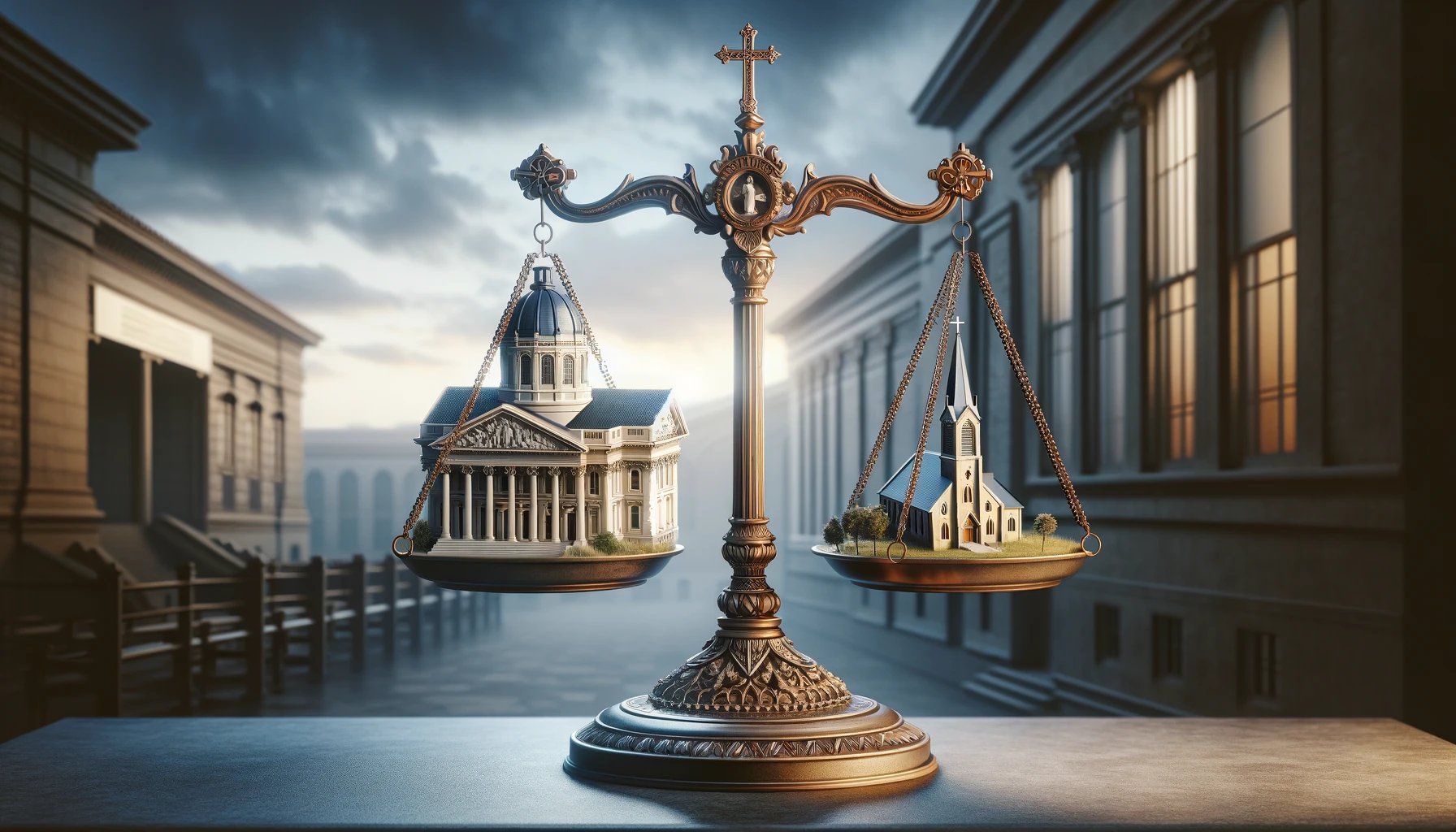

Theology and Spirituality
Why Separation Of Church And State Is Important
Published: February 11, 2024
Ericka Andersen, an editor at Christian.net, expertly merges digital strategy with content creation, focusing on faith and societal issues. Her communication skills enhance the platform's engaging narratives, fostering meaningful dialogue on belief's impact on society.
Discover the significance of the separation of church and state in theology and spirituality. Learn why it's crucial for maintaining religious freedom and societal harmony.
(Many of the links in this article redirect to a specific reviewed product. Your purchase of these products through affiliate links helps to generate commission for Christian.net, at no extra cost. Learn more)
Table of Contents
Introduction
The concept of the separation of church and state has been a topic of significant debate and discussion throughout history. It refers to the distinct separation between religious institutions and the institutions of the state. This principle is fundamental to the functioning of modern democratic societies and plays a crucial role in upholding individual freedoms and maintaining social harmony.
The idea of separating church and state has deep historical roots, dating back to the Enlightenment era in Europe. During this period, philosophers and political thinkers advocated for the separation of religious authority from the governance of the state. This movement was a response to the historical dominance of religious institutions in shaping political and social structures, often leading to oppression and conflict.
The principle of the separation of church and state is enshrined in the First Amendment of the United States Constitution, which prohibits the establishment of a state religion and guarantees the freedom of religion. This constitutional provision reflects the recognition that the intertwining of religious and political power can lead to the infringement of individual liberties and the marginalization of minority belief systems.
In contemporary society, the separation of church and state serves as a safeguard against the imposition of religious beliefs on the general populace through legislative or executive actions. It ensures that individuals are free to practice their chosen faith without interference or coercion from the government. Moreover, it prevents the state from favoring one religion over others, fostering an environment of inclusivity and tolerance.
The significance of this separation extends beyond the realm of religious freedom. It also contributes to the promotion of equality and the protection of diverse worldviews within a pluralistic society. By maintaining a secular government that remains neutral on matters of religious doctrine, individuals from varying religious and non-religious backgrounds can coexist harmoniously, fostering a more cohesive and inclusive social fabric.
In the subsequent sections, we will delve deeper into the historical background of the separation of church and state, explore the role of religion in government, and elucidate the importance of secularism in upholding individual rights and preventing religious conflicts. Through this exploration, we aim to shed light on the enduring relevance of this foundational principle in contemporary society.
Historical Background
The historical roots of the separation of church and state can be traced back to pivotal moments in the development of Western civilization. Throughout history, the intertwining of religious and political authority often led to the consolidation of power and the imposition of religious doctrine on society. This dynamic shaped the course of governance and social order, influencing the lives of individuals and communities.
One of the earliest instances of the fusion of religious and political authority can be observed in the Roman Empire, where the state religion was intertwined with the governance of the empire. The Roman Emperor held the title of Pontifex Maximus, signifying his role as the chief priest, consolidating both political and religious power. This amalgamation of authority underscored the pervasive influence of religious institutions on the affairs of the state.
The Middle Ages witnessed the dominance of the Catholic Church in Europe, where it wielded immense power over both spiritual and temporal matters. The concept of the divine right of kings, which posited that monarchs derived their authority from God, further solidified the close relationship between religious and political leadership. This alignment of power structures often resulted in the suppression of dissenting voices and the persecution of individuals whose beliefs diverged from the established orthodoxy.
The Enlightenment era marked a significant turning point in the discourse surrounding the separation of church and state. Philosophers and political thinkers such as John Locke, Voltaire, and Thomas Jefferson advocated for the delineation of religious authority from the functions of the state. Their writings and advocacy laid the groundwork for the recognition of individual liberties and the need to establish a secular government that respected diverse religious beliefs and philosophical perspectives.
The historical trajectory of the separation of church and state reflects a gradual shift towards the recognition of the autonomy of religious institutions and the importance of safeguarding individual freedoms from undue religious influence. This evolution has played a pivotal role in shaping modern democratic societies, emphasizing the imperative of maintaining a clear distinction between religious and governmental spheres.
The historical background of the separation of church and state underscores the enduring significance of this principle in ensuring the protection of individual rights and fostering a society that embraces diversity and pluralism. By understanding the historical context that gave rise to this foundational concept, we gain valuable insights into its relevance in contemporary governance and the preservation of fundamental freedoms.
The Role of Religion in Government
The role of religion in government has been a subject of profound significance throughout history, shaping the political landscape and influencing societal norms. In many societies, religious beliefs have played a pivotal role in informing the moral framework and guiding the legislative decisions of governing bodies. The intertwining of religious doctrines with governance has historically led to the formulation of laws and policies that reflect the values and principles espoused by specific faith traditions.
Religion has often served as a source of moral guidance for lawmakers, providing a set of ethical principles that inform the creation and implementation of legislation. In some historical contexts, religious authorities have directly influenced the governance of states, wielding considerable influence over matters of law, justice, and social order. This influence has manifested in the codification of religious precepts into legal systems, thereby shaping the conduct and behavior of individuals within society.
Moreover, the role of religion in government extends beyond the realm of moral guidance, encompassing the legitimization of political authority. Throughout history, rulers and governing bodies have invoked religious narratives and symbols to bolster their legitimacy and justify their rule. The intertwining of religious and political authority has been utilized to reinforce the perceived divine sanction of governance, thereby solidifying the authority of rulers and institutions.
However, the integration of religion into the mechanisms of government has also raised significant concerns regarding the potential for discrimination, exclusion, and the infringement of individual liberties. The imposition of specific religious doctrines through legislative measures has the potential to marginalize minority belief systems and restrict the freedom of individuals to practice their chosen faith or philosophical outlook.
In contemporary societies, the role of religion in government is a subject of ongoing debate, particularly in the context of secular governance. The principle of secularism emphasizes the neutrality of the state in matters of religion, ensuring that legislative decisions are not unduly influenced by religious doctrines. This approach seeks to uphold the freedom of individuals to practice their chosen faith while preventing the imposition of religious beliefs on the broader populace through governmental actions.
The evolving discourse on the role of religion in government underscores the complexities inherent in navigating the intersection of religious beliefs and governance. By critically examining this dynamic, societies can strive to uphold the principles of religious freedom, equality, and inclusivity within the framework of democratic governance, thereby fostering a more equitable and harmonious social order.
The Importance of Secularism
Secularism holds immense importance in modern societies as it serves as a foundational principle for upholding individual freedoms, fostering inclusivity, and maintaining social harmony. At its core, secularism advocates for the neutrality of the state in matters of religion, ensuring that governmental institutions refrain from favoring or endorsing any particular religious belief system. This approach is pivotal in safeguarding the rights of individuals from diverse religious and non-religious backgrounds, thereby promoting a society that respects and accommodates varying worldviews.
One of the primary reasons for the importance of secularism lies in its role in protecting religious freedom. By maintaining a secular government, individuals are granted the autonomy to practice their chosen faith without fear of persecution or discrimination. This fundamental freedom is essential for cultivating a society where individuals can express their religious convictions openly, contributing to a rich tapestry of cultural and spiritual diversity.
Furthermore, secularism plays a crucial role in preventing the imposition of religious beliefs on the broader populace through legislative or executive actions. By upholding the principle of state neutrality, secular governance ensures that laws and policies are formulated based on rational and inclusive considerations, rather than being driven by specific religious doctrines. This approach fosters an environment where individuals are not subjected to laws that privilege one religious perspective over others, thereby promoting equality and fairness within the societal framework.
Secularism also contributes to the mitigation of religious conflicts within society. By maintaining a neutral stance on matters of religion, the state can serve as a unifying force that transcends religious divides. This approach fosters an environment where individuals from diverse religious and philosophical backgrounds can coexist harmoniously, fostering a sense of unity and shared citizenship. In doing so, secularism acts as a bulwark against the potential for religious tensions and conflicts, thereby contributing to the overall stability and cohesion of society.
Moreover, secularism aligns with the principles of democracy by ensuring that governance is driven by the collective will of the people, rather than being influenced by specific religious agendas. This approach underscores the importance of creating an inclusive public sphere where individuals of varying beliefs can engage in civic discourse without encountering barriers based on religious affiliations.
In essence, the importance of secularism cannot be overstated, as it underpins the foundational values of religious freedom, equality, and social cohesion within modern societies. By upholding the principle of state neutrality in matters of religion, secularism paves the way for a more inclusive and harmonious societal fabric, where individuals can coexist and thrive irrespective of their religious or philosophical convictions.
Protecting Individual Rights
Protecting individual rights is a cornerstone of the principle of the separation of church and state. By maintaining a clear delineation between religious institutions and governmental entities, societies can safeguard the fundamental rights and freedoms of individuals from diverse religious and non-religious backgrounds.
At the heart of protecting individual rights lies the preservation of religious freedom. The separation of church and state ensures that individuals have the autonomy to practice their chosen faith without fear of persecution or coercion from the government. This foundational freedom allows individuals to express their religious beliefs openly, participate in religious rituals, and engage in communal worship without interference from the state. Moreover, it empowers individuals to live in accordance with their religious convictions, contributing to the richness of cultural and spiritual diversity within society.
Furthermore, the principle of protecting individual rights extends beyond religious freedom to encompass broader civil liberties. By upholding the separation of church and state, societies can prevent the imposition of specific religious doctrines on the general populace through legislative or executive actions. This approach ensures that laws and policies are formulated based on inclusive and rational considerations, rather than being driven by the tenets of a particular faith. As a result, individuals are shielded from the potential marginalization or discrimination that may arise from the imposition of religious beliefs through governmental measures.
The protection of individual rights within the framework of the separation of church and state also serves to foster an environment of inclusivity and equality. By maintaining a secular government that remains neutral on matters of religion, societies can create a space where individuals from diverse religious and philosophical backgrounds are treated with fairness and respect. This approach contributes to the cultivation of a society where all individuals, irrespective of their religious affiliations, can participate fully in civic life, access public services, and engage in the public sphere without encountering barriers based on their beliefs.
In essence, protecting individual rights through the principle of the separation of church and state is essential for upholding the dignity, autonomy, and equality of individuals within society. By ensuring that religious freedom is preserved, civil liberties are safeguarded, and inclusivity is promoted, this foundational principle contributes to the creation of a society where individuals can thrive and coexist harmoniously, irrespective of their religious or philosophical convictions.
Avoiding Religious Conflict
The principle of the separation of church and state plays a pivotal role in mitigating religious conflicts within society. By maintaining a secular government that remains neutral on matters of religion, societies can create an environment where individuals from diverse religious and philosophical backgrounds can coexist harmoniously, thereby reducing the potential for interfaith tensions and discord.
One of the primary mechanisms through which the separation of church and state helps avoid religious conflict is by preventing the dominance of a particular religious worldview in the formulation of laws and policies. In societies where religious doctrines heavily influence governance, there is a heightened risk of marginalizing minority belief systems and imposing restrictions on individuals who do not adhere to the dominant faith. This dynamic can engender resentment, social division, and, in extreme cases, lead to interfaith strife. However, by upholding the principle of state neutrality in matters of religion, secular governance ensures that legislative decisions are not driven by the tenets of a specific faith, thereby fostering an environment of inclusivity and respect for diverse religious perspectives.
Furthermore, the separation of church and state serves to create a civic space where individuals can engage in public discourse and civic life without encountering barriers based on their religious affiliations. This inclusive environment allows for the exchange of ideas, the celebration of cultural diversity, and the fostering of mutual understanding among individuals from varying religious backgrounds. By promoting an ethos of tolerance and respect for differing beliefs, secular governance contributes to the cultivation of a society where individuals can coexist peacefully, transcending religious divides and minimizing the potential for religiously motivated conflicts.
Moreover, the principle of the separation of church and state aligns with the imperative of maintaining a pluralistic society. By ensuring that the government does not endorse or favor any specific religious belief system, secularism creates a framework where individuals are free to practice their chosen faith without fear of persecution or discrimination. This approach fosters an environment where diverse religious and non-religious perspectives are valued and respected, contributing to the overall social cohesion and stability of the society.
In essence, the avoidance of religious conflict through the principle of the separation of church and state underscores the pivotal role of secular governance in fostering an environment of inclusivity, respect for diverse beliefs, and the mitigation of interfaith tensions. By upholding the neutrality of the state in matters of religion, societies can work towards creating a harmonious and cohesive social fabric, where individuals can coexist peacefully, irrespective of their religious convictions.
Conclusion
In conclusion, the principle of the separation of church and state stands as a foundational pillar in modern democratic societies, embodying the values of religious freedom, individual rights, and social harmony. Throughout history, the intertwining of religious and political authority has often led to oppression, discrimination, and social discord. The evolution of this principle reflects a collective recognition of the imperative to establish a clear delineation between religious institutions and the functions of the state.
The historical background of the separation of church and state underscores the enduring relevance of this principle in safeguarding individual liberties and fostering a society that embraces diversity and pluralism. From the Roman Empire to the Enlightenment era, the struggle to disentangle religious authority from governance has shaped the trajectory of governance and individual freedoms, culminating in the recognition of the autonomy of religious institutions and the importance of safeguarding individual rights from undue religious influence.
The role of religion in government has been a subject of profound significance, influencing legislative decisions, moral frameworks, and the legitimization of political authority. However, the integration of religious doctrines into governance has raised concerns regarding discrimination, exclusion, and the infringement of individual liberties. The evolving discourse on the role of religion in government underscores the complexities inherent in navigating the intersection of religious beliefs and governance, emphasizing the need for a neutral stance in matters of religion.
Secularism, as a guiding principle, holds immense importance in modern societies. It serves as a bulwark against the imposition of religious beliefs, fosters inclusivity, and mitigates religious conflicts. By upholding the principle of state neutrality in matters of religion, secularism paves the way for a more inclusive and harmonious societal fabric, where individuals can coexist and thrive irrespective of their religious or philosophical convictions.
The protection of individual rights within the framework of the separation of church and state is essential for upholding the dignity, autonomy, and equality of individuals within society. By ensuring that religious freedom is preserved, civil liberties are safeguarded, and inclusivity is promoted, this foundational principle contributes to the creation of a society where individuals can thrive and coexist harmoniously, irrespective of their religious or philosophical convictions.
In essence, the avoidance of religious conflict through the principle of the separation of church and state underscores the pivotal role of secular governance in fostering an environment of inclusivity, respect for diverse beliefs, and the mitigation of interfaith tensions. By upholding the neutrality of the state in matters of religion, societies can work towards creating a harmonious and cohesive social fabric, where individuals can coexist peacefully, irrespective of their religious convictions.
The enduring relevance of the separation of church and state in contemporary society underscores its pivotal role in upholding individual freedoms, fostering inclusivity, and mitigating religious conflicts. By maintaining a clear distinction between religious institutions and the functions of the state, societies can strive towards creating a more equitable, harmonious, and inclusive social order, where individuals can thrive and coexist irrespective of their religious or philosophical convictions.
